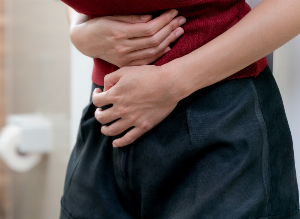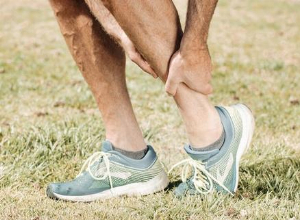How can you avoid travellers' diarhhoea while on holiday?
Published 19 Aug 2023 • By Claudia Lima
Travellerss diarrhoea (TD) is a common gastrointestinal ailment that can quickly spoil a holiday. However, with the right preparation and rigorous hygiene, you can minimise the risks of catching it and enjoy a carefree holiday abroad.
What are the symptoms of Travellerss diarrhoea (TD)? What are the aggravating factors? How can it be prevented, and how can the stomach upsets it causes be treated?
Find all the answers in our article!

What is travellers' diarhhoea and what symptoms does it cause?
Whether you're a seasoned traveller or preparing for your first major expedition, travellers' diarrhoea (TD) can affect anyone.
TD affects between 25% and 60% of people travelling to tropical countries and countries with poor hygiene, as well as North America, Southern Europe and Australia, because, as the WHO points out, hygiene is not perfect anywhere.
This condition, benign in the majority of patients, is most often of bacterial origin (Escherichia coli, Shigella, Salmonella, Yersinia, Campylobacter, etc.). Sometimes it is viral (rotavirus) and rarely parasitic (amoebae).
It is caught through contaminated food (raw or undercooked meat and fish served warm, unpeeled fruit and vegetables, water and ice cubes, milk), dirty hands and flies.
Because travellers are exposed to unusual microbes, their intestines are sensitive to the toxins secreted by the germs. These toxins cling to the intestinal wall and cause abnormal and abundant secretions of fluids. This leads to diarrhoea.
Symptoms generally appear in the first few days of travel and last from a few hours to less than five days.
They can include:
- 3 to 6 liquid stools a day,
- Nausea and vomiting,
- Abdominal cramps or pain,
- Bloating and excessive gas,
- Loss of appetite,
- Headaches,
- Inconsistent fever,
- Extreme tiredness,
- Feeling unwell (less common).
The main risk is dehydration. Serious forms of the disease are mainly seen in people who are more fragile, such as children under the age of two, the elderly or people with chronic illnesses, as well as those suffering from reduced immune defences.
How can you prevent getting travellers' diarrhoea?
When TD must be avoided at all costs, as in the case of vulnerable patients, athletes, etc., preventive antibiotic treatment (azithromycin) may be prescribed.
Otherwise, food and personal hygiene measures will suffice.
Here's our advice:
- Avoid eating raw foods, unpasteurised dairy products and butter, and freshwater shellfish,
- Wash fruit and vegetables thoroughly and peel the skin if necessary before eating or cooking,
- Avoid drinking tap water and ice cubes, and prefer drinks in sealed bottles. You can drink boiled water or use purification tablets,
- Wash your hands regularly with soap and water, after using the toilet and before touching food,
- Use hydro-alcoholic gel frequently,
- Do not brush or rinse your teeth with local water,
- Keep public places clean.
How can the symptoms of travellers' diarrhoea be treated?
Rehydration
In the event of TD, the first thing to do is rehydrate. Rehydration can be done with any water containing glucose, potassium and salt, such as bottled water, fruit juices, soft drinks, combined with salted biscuits, broth, etc. There are also oral rehydration solutions or ORS. ORS are intended for special medical purposes; it is not a medicine. This product generally comes in sachets of powder to be dissolved in water.
Rehydration is usually combined with a specific diet for a few days. Fibre-rich foods should not be consumed as long as the stool is liquid, certain juices (apple, pear, grape) should be limited as they are laxatives, and consumption of dairy products and fatty dishes should be limited. We recommend eating white rice, lentils and ginger, which is effective against nausea and spasms, and bananas and apples as fruit.
If symptoms persist or worsen, see a local doctor or seek out a hospital or a clinic. They will be able to assess the condition and prescribe treatment if necessary.
Drug treatment
To treat diarrhoea, antidiarrhoea drugs should be taken; however, transit slowers should be used with caution.
Abdominal pain is treated with an analgesic (paracetamol) or a gastric bandage (Gaviscon®, Maalox®). Vomiting is treated with antiemetics (Emend®), and in severe cases of high fever, antibiotics are prescribed.
In conclusion, it is clear that preventing TD, or travellers' diarrhoea, requires a combination of preventive measures and good food and personal hygiene. By adopting a proactive approach during your holiday, you can considerably reduce the risk of catching this condition and enjoy your holiday to the full without being bothered by TD.
Give it a "like" and share your thoughts and questions with the community in the comments below!
Take care!

 Facebook
Facebook Twitter
Twitter



